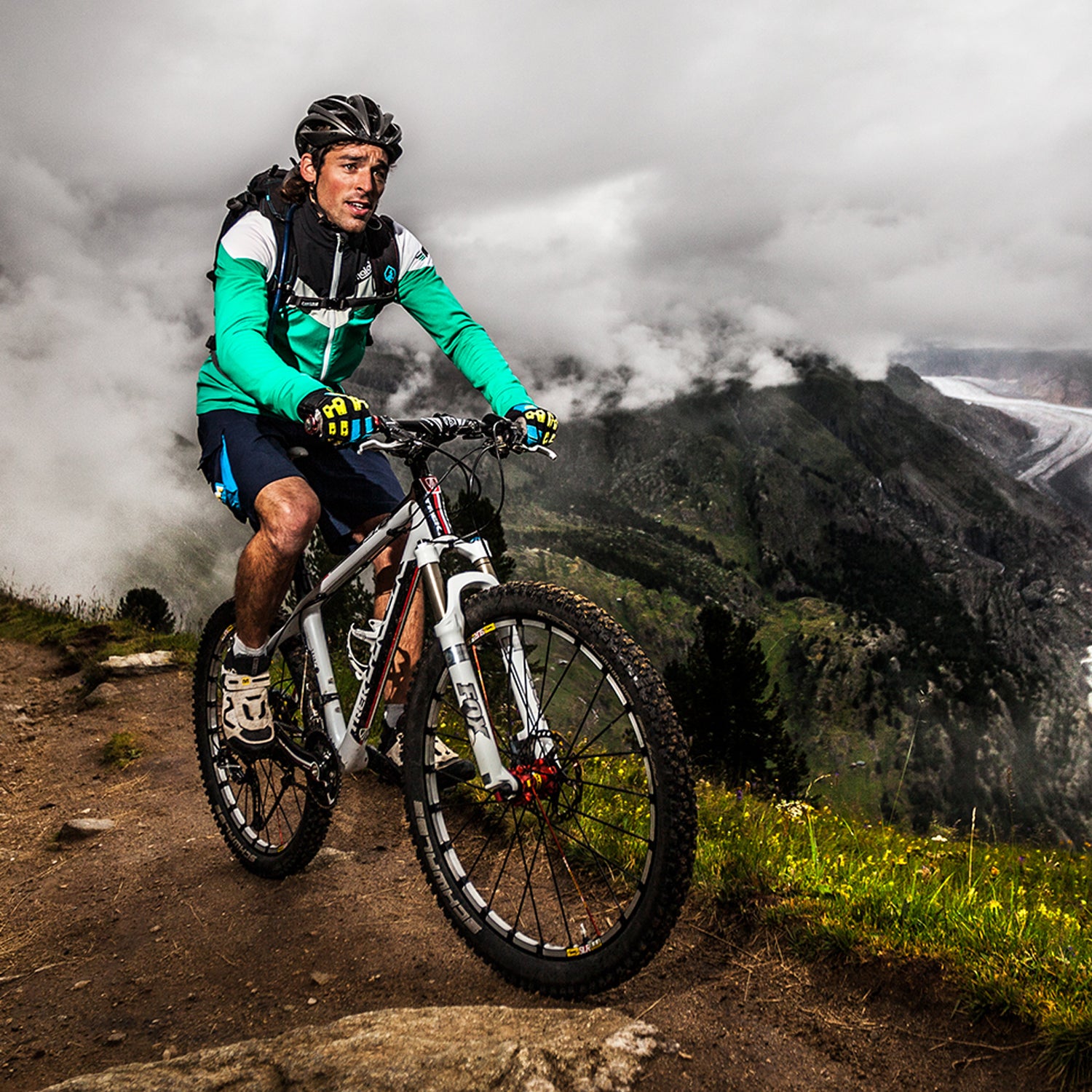It’s hard to comprehend just how good mountain bikes have gotten in the past few years, thanks to lighter, stiffer frames and wheels, and ever-improving components. We rode 36 new models at our annual test in Tucson, Arizona. These seven—four 29ers and three 27.5s—blew our minds.
Specialized S-Works Enduro ($9,300)
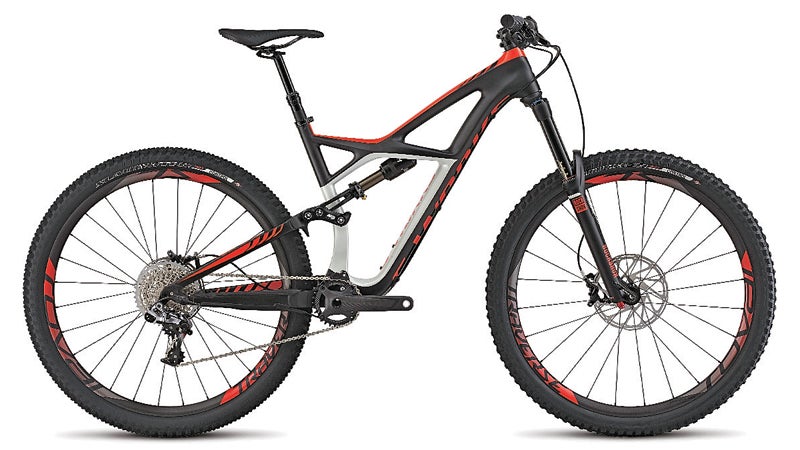
BEST FOR: Just about anything.
THE TEST: If you need proof that 29ers are here to stay, this is it. All our testers agreed that the Enduro allowed them to ride beyond their abilities. The bike is like black magic: at 27.3 pounds, it’s so light that it climbs as well as a cross-country machine, yet it’s also rooted and confident enough, with 155 millimeters of rear travel and a 160-millimeter RockShox Pike RCT fork, that it descends like a runaway freight train. The new, wider Traverse SL Fattie rims provide even more certainty in steep, rocky terrain. Yes, it’s insanely expensive, but the Enduro is a study in what’s possible. Plus, there are three lower-priced versions, built with the same geometry but less expensive parts, starting at $3,300.
THE VERDICT: The next evolutionary step in mountain bikes, for those looking to up their game. 27.3 lbs.
Spot Cream SS ($8,900)
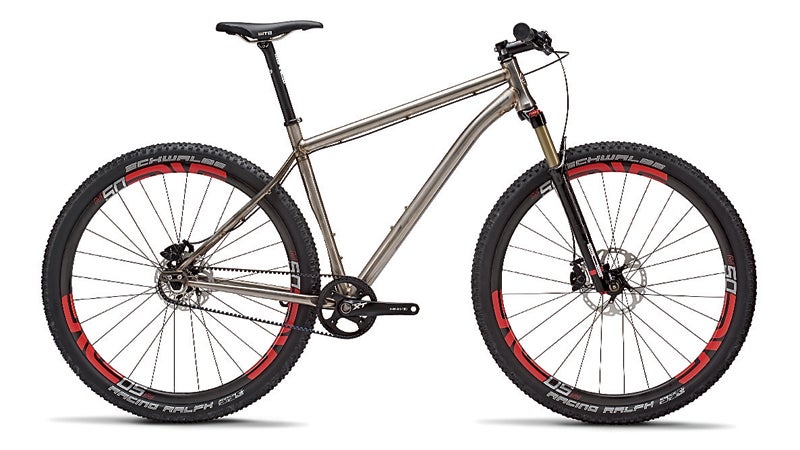
BEST FOR: Not worrying about shifting.
THE TEST: This titanium single-speed 29er is smooth enough to make you want to forgo gears. The new Gates Carbon Drive Red is as squeak- and maintenance-free as the original. It also pairs beautifully with the Enve M50 wheels—the lightest, fastest option on the market. The 100-millimeter fork from BOS is so silky and solid that several riders said they would trade up, despite the premium price ($1,080). And though hardtails tend to be rough, the titanium frame and smartly oversize, 2.35-inch tires make for a surprisingly plush ride.
THE VERDICT: The ultimate single speed, even if it isn’t especially light. 21.9 lbs.
Niner Jet 9 RDO Carbon $6,800
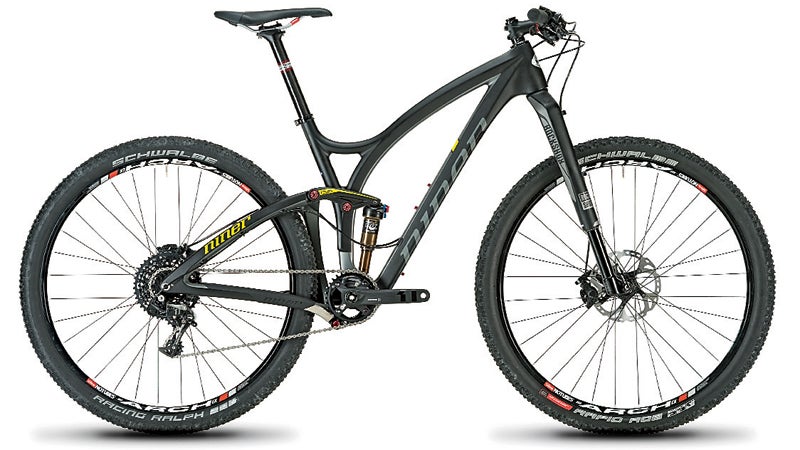
BEST FOR: Racing in style.
THE TEST: By shaving excess carbon during manufacturing, Niner made its 100-millimeter Jet 9 RDO even lighter and more chipper than previous iterations. It’s a study in refinement, with swoopy lines, flawless internal cable routing, and
a house-brand cockpit and saddle that look and ride great. The stunning new inverted 120-millimeter RockShox RS-1 fork—which adds precise steering, thanks to a one-piece carbon crown—so perfectly matches the aesthetic that it could have been created for Niner. And every component, including Stan’s 29-inch Arch EX wheels, SRAM XO1 drivetrain, and Shimano XT brakes, delivers premium performance at midrange pricing.
THE VERDICT: A connoisseur’s speedster, as fast and composed as a BMW M5. 24.9 lbs.
Trek Remedy 9 $4,990
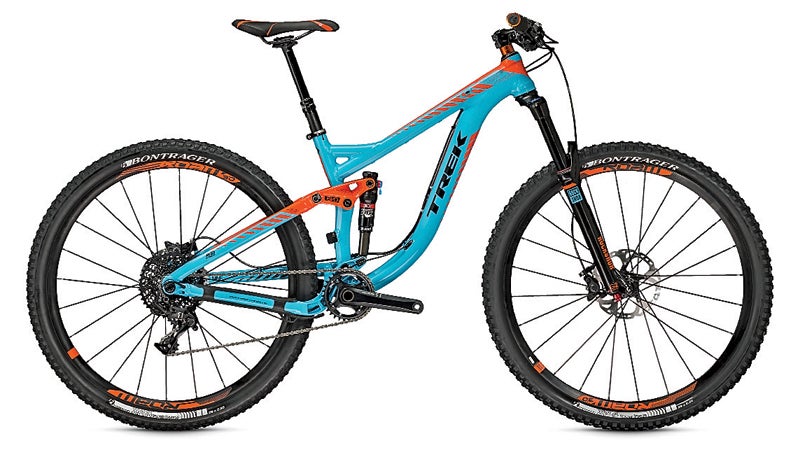
BEST FOR: Elite performance at a tolerable price.
THE TEST: The biggest surprise for testers was that the 140-millimeter aluminum Remedy kept up with most of the carbon bikes we tried, even though it costs $3,000 less. Trek managed to make the chainstays short for quick acceleration and the headtube angle shallow for stable descending, yet the ride position still felt low and nimble—an impressive feat for a long-travel 29er. The new Reaktiv shock uses two chambers to produce excellent small-bump sensitivity and still feel plush on bigger hits. The tubeless SRAM Roam 30 wheels are fast rolling, the Shimano XT brakes offer the best stopping bang for the buck, and the RockShox dropper post is a boon at this price point.
THE VERDICT: An incredible all-arounder, if a bit heavy. For another $840, the carbon-frame 9.8 trims 2.5 pounds. 28.9 lbs.
Pivot Mach 4 Carbon $9,000
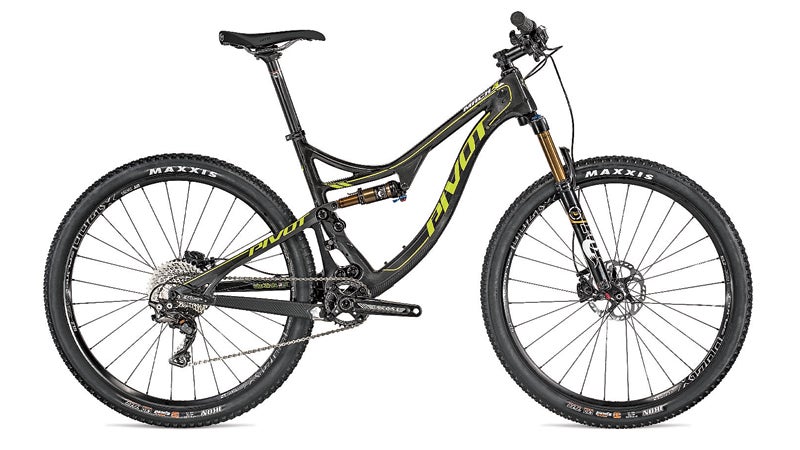
BEST FOR: Teched-out speed freaks.
THE TEST: Pivot partnered with Shimano to develop XTR Di2, the first electronic drivetrain for mountain bikes, and the integration in this 115-millimeter carbon ride is flawless, with the battery tucked neatly inside the down tube and clean ports for internal cabling. Though some testers initially resisted the electronics, the impeccable shifting won over everyone. It’s more than just a flashy drivetrain: the Mach 4 has low stand-over for maneuverability and excellent pedaling efficiency, courtesy of the DW-Link suspension. With a 120-millimeter Fox fork up front and a 68.2-degree headtube, this is the new cross-country-bike paradigm, spry enough for racing but still capable for all-around trail riding.
THE VERDICT: The future is now. 24.6 lbs.
Intense Tracer T27.5C Foundation $4,600
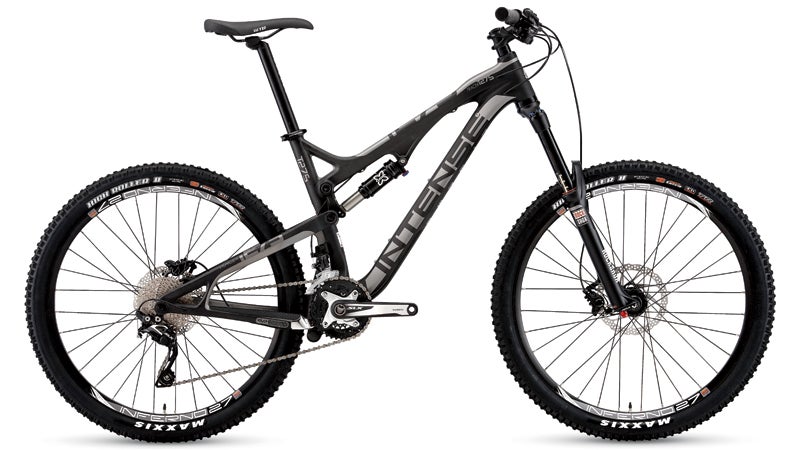
BEST FOR: Slamming downhills.
THE TEST: Even with its 66.5-degree head angle, the Tracer proved surprisingly nimble on several ledgy, technical uphills. That’s courtesy of the adjustable suspension design, which allows this 27.5er to flop between 140 and 160 millimeters of travel without tweaking the geometry. Even on declines, most testers loved the shorter travel mode, which had the bike charging through pedal sections and provided momentum-gaining pop out of dips and corners. The bike is stable as a sled on descents, and we love the Foundation build kit, which gets you solid components (Shimano SLX drive-train and brakes, RockShox Pike RC fork) at a reasonable price. The only thing missing is a dropper post.
THE VERDICT: Bridges the gap between trail bike and downhiller. 29 lbs.
Ibis Mojo HD3 $7,900
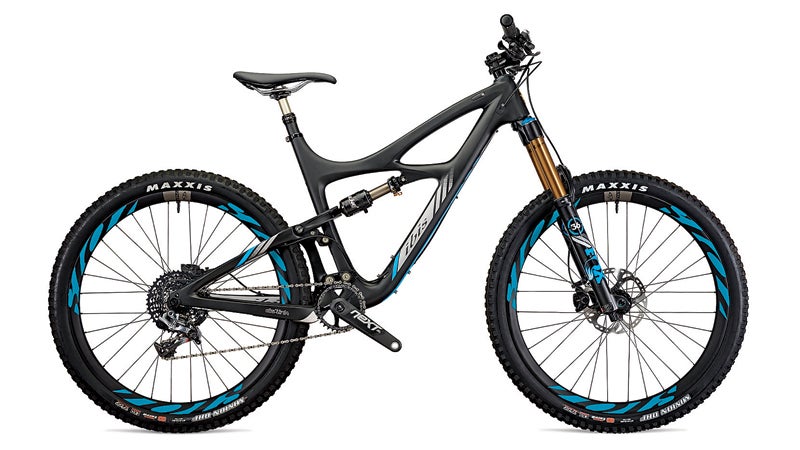
BEST FOR: Enjoying the ride (on any trail).
THE TEST: Six inches of travel may sound too big for every day, but we would actually consider the third generation of the Mojo as a one-bike quiver. It combines 27.5 wheels with a not-too-slack 66.8-degree head angle and super-short chainstays. We found that it climbs like a chimp, even at 28.5 pounds, clambering over step-ups and roots courtesy of the DW-Link suspension and the extra clearance of the Shimano XTR 1×11 drivetrain. Our tester had upgraded suspension, including the highly tuneable Cane Creek DBInline shock and the new 160-millimeter Fox 36 RC2 fork, which challenges even the supremacy of the RockShox Pike with its solid, smooth manners. We loved the massive 741 rims for the wider contact patch and traction, until we broke the rear—a manufacturing error that’s since been fixed.
THE VERDICT: An enduro bike for the crowd that likes to pedal. 28.5 lbs.

